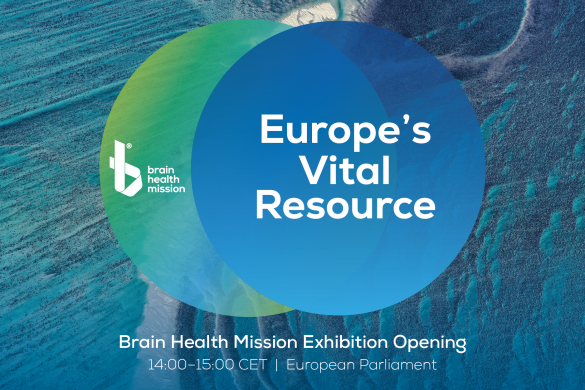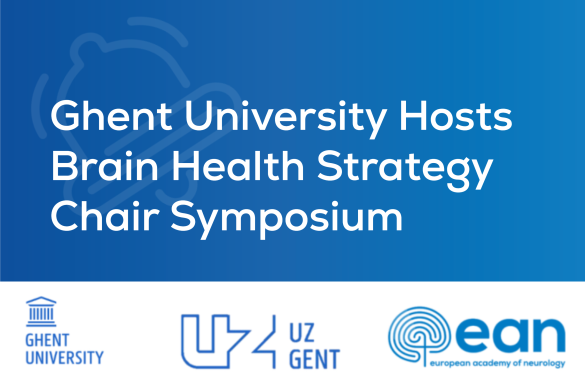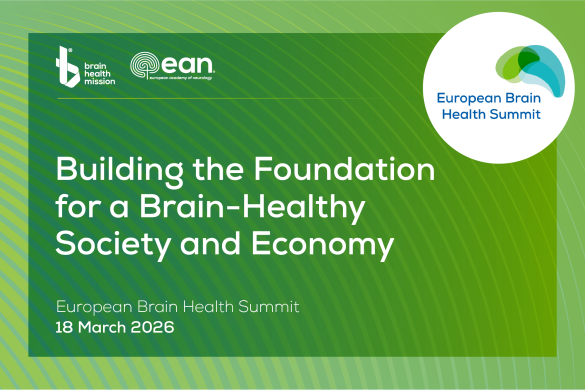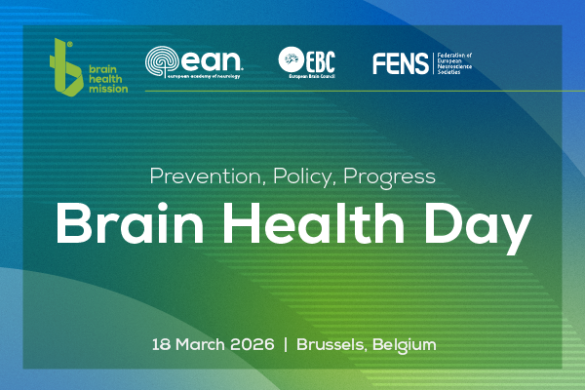The first of the new series of Advocacy Talks was dedicated to the topic of general health of the brain, unlike the others, which are concentrating on specific diseases. The talk ran live on EAN TV and was moderated by Matilde Leonardi, MD, from the National Neurological Institute in Milan, a member of the International Liaison Group of the EAN. The issue was discussed by Prof. Claudio Bassetti, President of EAN, and Prof. Matthias Endres, Director of the neurology department at Charité Hospital, Berlin, Germany.
The burden of neurological diseases enormously affects all European countries. Matthias Endres expanded on what health is, using the definition of health from the WHO from 1984, stating that health is a state of absolute physical, mental and social wellbeing, not merely the absence of disease infirmity. Claudio Bassetti’s preferred definition concentrates on brain health as a promotion of optimal brain development, cognitive health and wellbeing for all, throughout the course of life; a person-centred approach focused on promotion, prevention, treatment, care and rehabilitation.
The contrast between the two statements is emblematic of the whole series of talks. The classical approach, demonstrated by the WHO definition from 1984, is opposed by the more human-centered rationale of prevention. Both speakers agreed that brain health is vital for the overall health of an organism. The brain should be prioritised as it is the most valuable organ.
Prof. Bassetti then supported his interpretation by explaining the necessity to move away from the disease centred approach to prevention-based rationale by keeping the ’Big Six‘: physical activity, mental activity, healthy diet, enough quality sleep, maintenance of social interactions, and brain protection. Avoidance of factors that make the brain unhealthy and less resilient throughout the course of life are of critical value.
Both Professors agreed that there is a need for a broader call for advocacy for brain health. This concept should be interdisciplinary, as should the determinants, which can be divided into several groups. These are: physical, psychological, social, environmental, economic and political. The players involved also need to be perceived in such manner – general and specialised neurologists, neuroscientist, psychiatrists, psychologists, social scientists, policy makers, patients and citizens. Prof Bassetti and Endres expressed the need–even necessity–for partnership, which is undervalued and underestimated.
Claudio Bassetti stressed the importance of commitment and urgency in promoting brain health, as simply treating diseases is not enough. In this sense, he accentuated the need for counselling. The talk ended with a compelling call for action for stakeholders and partnership, which, according to Prof. Bassetti, can be promoted via 47 national societies, which should at least attempt to have influence on local stakeholders.
In closing words, Prof. Endres stated that we should be ambitious. Prof Bassetti added that common help is needed.













